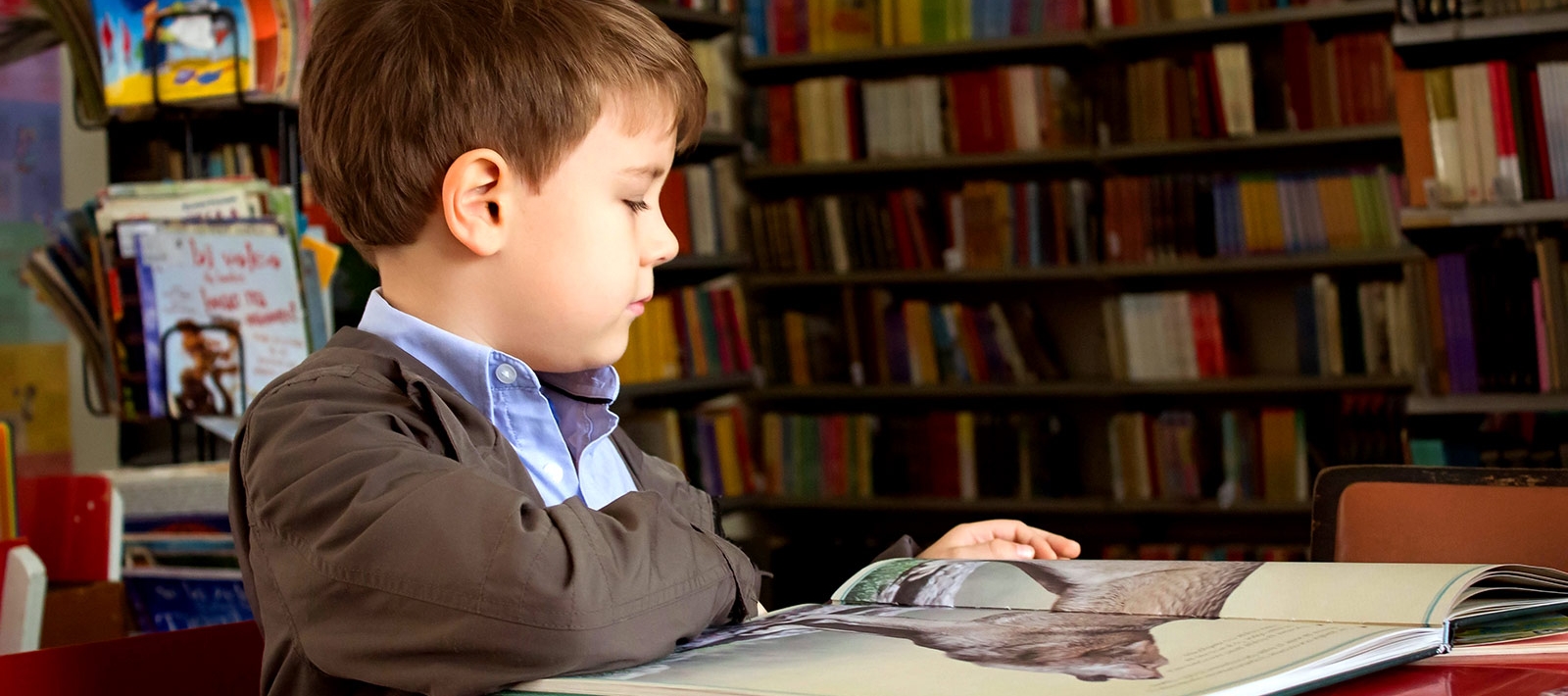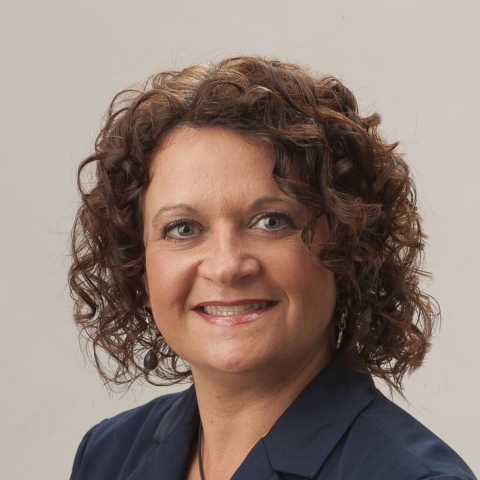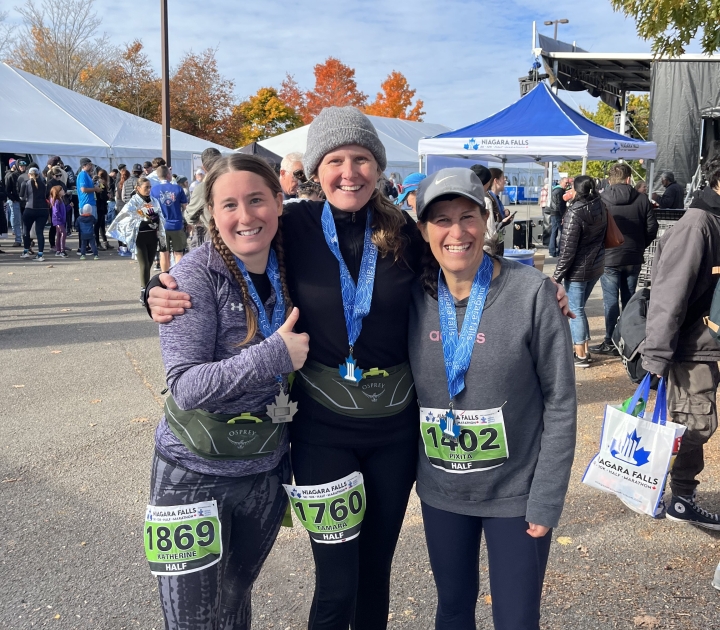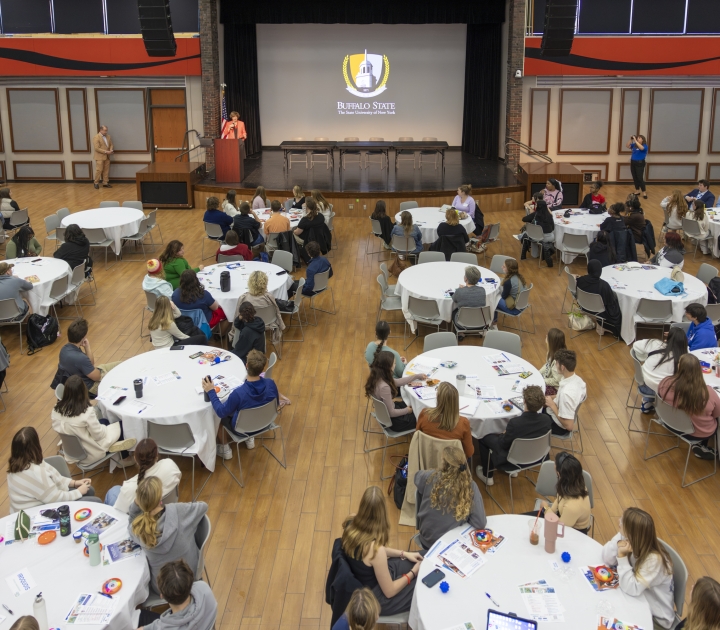
About Childhood Education
Buffalo State’s childhood education program thoroughly prepares students for careers in the elementary school classroom. When our students complete the program, they are certified to teach grades one through six with extensions offered for grades seven through nine. Through their coursework and fieldwork, education majors develop a strong work ethic, organization and management skills, experience interacting with people from diverse backgrounds, flexibility, and a commitment to lifelong learning.
Childhood Education (Grades 1-6), B.S.
Childhood Education and English Extension (Grades 1–6 and English 7-9), B.S.
Childhood Education and Mathematics Extension (Grades 1–6 and Mathematics 7-9), B.S.
Childhood Education and Social Studies Extension (Grades 1–6 and Social Studies 7-9), B.S.
Childhood and Early Childhood Curriculum and Instruction, M.S. Ed
Childhood Education Initial Teaching Certification (Grades 1-6), M.S. Ed
Literacy Specialist (Birth-Grade 12), M.S. Ed
Degree Information
When you leave Buffalo State with a childhood education diploma, you’ll be armed with a degree that opens the door to many job opportunities. Our graduates have been employed in public, private, and charter elementary schools locally, nationally, and across the globe. Teacher shortages in New York City, Texas, and other states in the Southwest mean that successful teacher candidates willing to travel have their choice of positions. Locally, our graduates are teaching throughout Western New York schools. Loyal alumni in educational leadership roles are eager to interview our graduates. Some graduates who have participated in study abroad experiences have returned to teach in international schools.
However, if you eventually decide that classroom teaching is not for you, there are plenty of alternative career options for childhood education majors including:
Adoption Agency/Foster Care Administrator
Childcare (Daycare) Provider
Childcare Center Manager/Director
Curriculum Developer/Researcher
Home-based Service Provider (Nanny)
Home-based Tutor
Nonprofit Youth Services Worker
Park/Community Center Youth Activities Coordinator
Summer Camp Counselor/Manager
Youth Athletics Coach
Youth Leader at a Religious Organization
Elementary Education Club: Enables education students to socialize and organize volunteer and service-learning activities in the Buffalo area.
Global Book Hour: Student-facilitated program provides weekly book-focused sessions integrating geography, arts, and healthy eating for local children.
Kappa Delta Pi: The international honor society is a prestigious organization dedicated to scholarship and excellence in education.
Tutoring in Area Schools: Multiple opportunities are available to engage students through one-on-one tutoring in schools throughout Western New York.
TeachLivE™: This virtual-reality classroom provides teachers the opportunity to develop their pedagogical practice in a safe environment that doesn’t place real students at risk.
Service Learning: Under the tutelage of Buffalo State faculty and staff, service-learning initiatives are available through many organizations located on Buffalo’s West Side.
International Initiatives: Education majors have the opportunity to participate in teaching programs in foreign countries, including Chile, the Dominican Republic, Germany, Italy, and Zambia. These two- of three-week long programs complement a semester worth of study to globalize students’ understanding of education.
Undergraduate research opportunities are plentiful in local Professional Development Schools (PDS) sites and in combination with travel as faculty collaborate with students to conduct applied research in school settings. Each year, the department sponsors student travel to the National Association of Professional Development School (NAPDS) Annual Meeting to present their undergraduate research to a national audience.
Instead of internships, childhood education majors engage in school placements throughout Western New York under the tutelage of a classroom teacher. The culminating courses vary in placement for the childhood education majors but usually include two supervised student teaching experiences with children at different age levels in different types of schools. It is expected that students in these majors will have at least one urban teaching experience.
Reputation
All of Buffalo State’s education programs have received awards from the National Association of Professional Development Schools for outstanding work in collaborating with school partners to provide exemplary teacher preparation programs.
Accreditation
The Elementary Education, Literacy, and Educational Leadership Department is accredited by the Council for the Accreditation of Educator Preparation. You will earn a degree from a nationally accredited program.
Small Class Size
Classes required for the childhood education major typically have between 12 and 25 students; the field-based courses have a maximum class size of 15, which means plenty of individualized attention from professors.
Certification Options
Childhood education majors with concentrations in English, mathematics, social studies, French, Spanish, or Italian may choose to extend their teaching certification to grades seven to nine.
Location
Our education majors study in the second-largest city in the state with opportunities to work closely with schoolchildren in urban, suburban, and rural settings.
Acceleration Choice
The 4+1 accelerated pathway program allows qualified undergraduates to take graduate-level coursework providing them seamless entry to the master’s degree program and an accelerated path toward an advanced degree.




